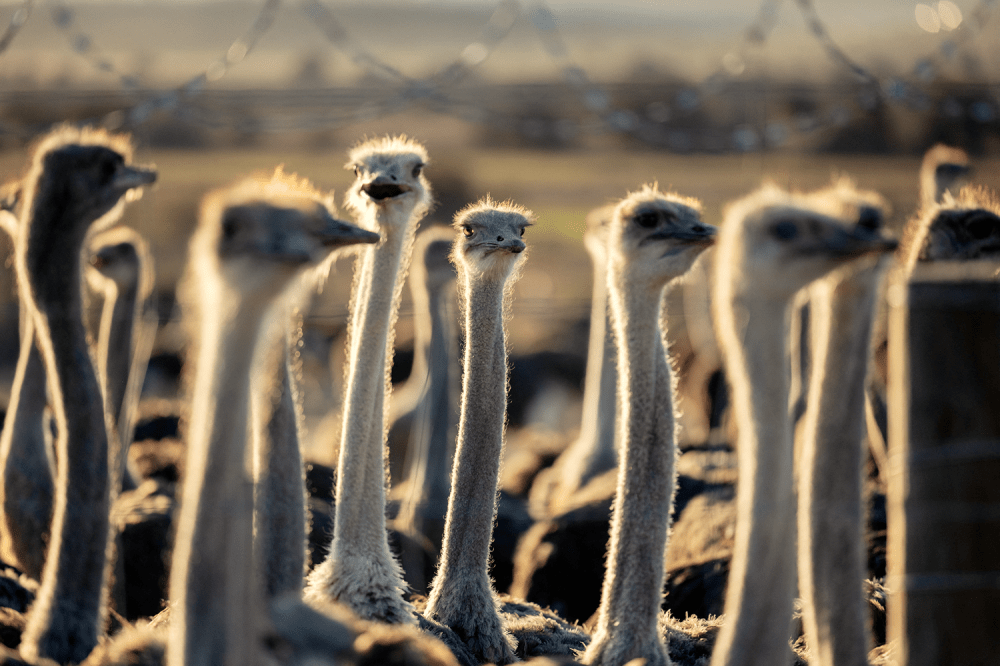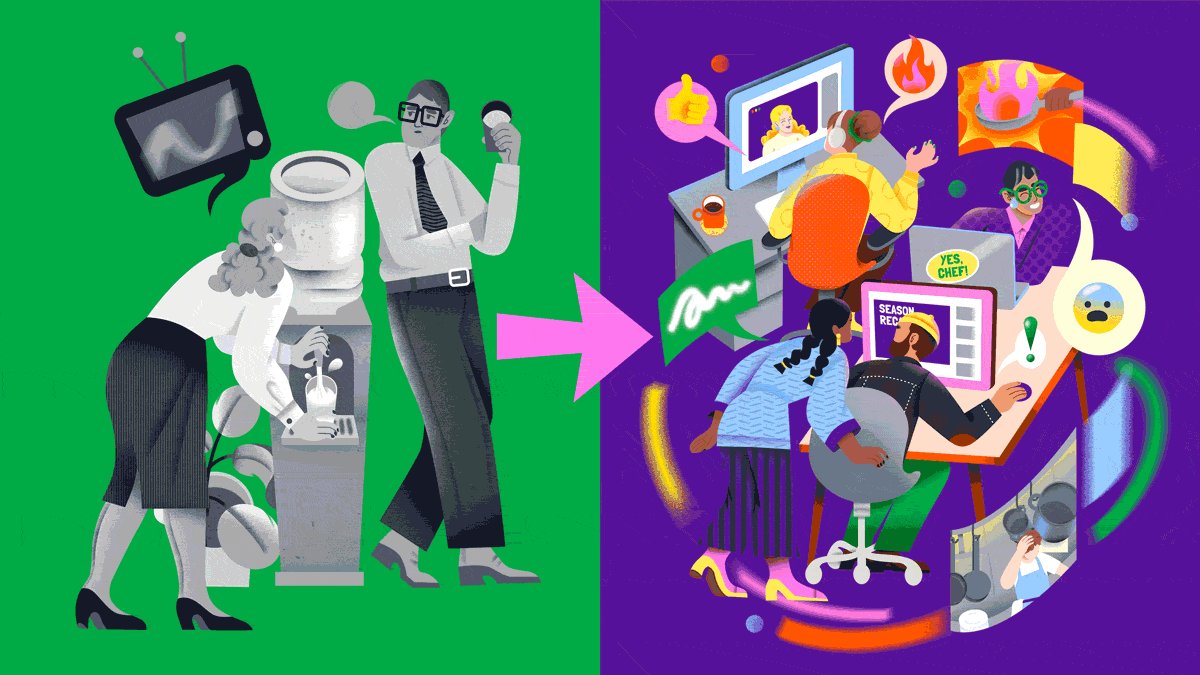Copyright Foreign Policy

They’re incapable of flight but great for starting fights—including international culture war skirmishes. A few hundred ostriches on a Canadian farm have become unlikely martyrs for conservatives around the world after they became the targets of a federally ordered cull. Throughout 2025, the ostriches have drawn support from right-wing social media, which began promoting the story as an example of government overreach, spurred on by anti-vaccination-related mistrust. The ongoing saga led hundreds of American pilgrims to flock to a rural British Columbia town to fight for their newly beloved birds. Canadian police have made multiple ostrich-related arrests since the brouhaha began. On Nov. 6, after months of stalling, the Canadian Supreme Court finally dismissed the ostrich farm’s last appeal, allowing the cull to begin. Ostriches were corralled and then executed by bullet over the cries of distraught protesters. “You should go in there and let them cull you,” one protester reportedly cried as the shooting began. How did the fiercest avian standoff since Australia’s Emu War start? Bird flu is an increasing problem around the globe. In case of an outbreak, international health officials recommend culling not only the infected animals but also animals in close proximity to those that are infected. So when ostriches at the Universal Ostrich Farm in Edgewood, British Columbia, contracted the disease late last year, the Canadian Food Inspection Agency (CFIA) ordered the farm to cull all 400 of its ostriches for public safety. Historically, demand for ostrich feathers has created a surprisingly cutthroat global market, but the number of ostrich farms has dwindled in recent years, at least in the United States. Universal Ostrich Farm co-owners Dave Bilinski and Karen Espersen, along with Espersen’s daughter Katie Pasitney, immediately fought back on social media and through local media outlets, arguing that only about 10 percent of the birds had died from the disease and that the rest were fine. But court documents place the actual death toll at 69 birds, and they attribute the cause to a strain of bird flu not otherwise present in Canada. What followed became a yearlong push-pull of government authority and local resistance as the farm went into quarantine and Canadian officials took over supervision of the animals. The first ordered cull, with a deadline of Feb. 1, 2025, was halted pending a judicial review of the case. That review, issued in May, then reinforced the CFIA’s ruling, noting, “Allowing a domestic poultry flock known to be exposed to HPAI [highly pathogenic avian influenza] to remain alive allows a potential source of the virus to persist,” which “could also increase the human health risk.” The farmers immediately appealed in a process that pushed the cull back a few more months; the appeal was denied in August, then punted to the Canadian Supreme Court, which finally issued a stay of the cull in September, pending a full hearing of the case, but then ultimately decided to dismiss the appeal without a hearing at all. Throughout this drawn-out process, public support for the farmers grew, not only across Canada but also across conservative social media. Numerous conservative American figures, including celebrity surgeon Mehmet Oz and U.S. Health and Human Services Secretary Robert F. Kennedy Jr. (who had already raised alarm among public health experts for his potential response to an avian flu pandemic), advocated for Canadian authorities to study the birds instead, arguing that the flock’s survival made the birds good test subjects for potential bird flu antibodies. Meanwhile, protesters from across North America have been arriving to the remote farm daily, disrupting local life, and harassing nearby residents—one protester was arrested in early October after allegedly physically assaulting one of the ostrich farm’s neighbors by pouring gasoline on her and punching her. Another arrest later this month involved a social media influencer who’d broken the farm’s quarantine restrictions. He was subsequently banned from the property. Then there are the farm owners themselves. Both Espersen and Pasitney were arrested in September after refusing to leave the farm and impeding takeover efforts by CFIA; Pasitney claimed that the duo was just trying to feed the birds. The farm had previously also been issued citations from CFIA for failing to properly alert authorities about the illness as well as for failing to properly administer quarantine restrictions. The business was fined 20,000 Canadian dollars (about $14,300 in USD) for the violations. Since all this began, Pasitney—the farm’s unofficial spokesperson—has continually advocated for her flock, sporting a “Make Canada Free Again” hat and appearing on local independent media outlets such as Canada’s “Rebel News” platform, which created an entire “Save the Ostriches!” subsite. The farmers’ objections to the CFIA takeover are manifold, beginning with the industry’s classification of the farm itself as a “poultry” farm when the ostriches aren’t sold for food but rather for feathers, ostrich oil, and skins. Fears that the ostriches might infect the food supply chain seem largely unfounded, since the ostriches don’t interact with the food industry and have been quarantined for the better part of a year. The economic concern carries enormous weight as well, since the cull will jeopardize the farm’s future, necessitating—as one judge noted—“the closure of (a) 25-year-old business and the loss of the applicant’s decades-long efforts in cultivating a unique herd of ostriches.” Not lost on anyone is that the farm waging this fight against the government is a small, independent farm in an era where climate change, industry monopolization, and disease outbreaks have all made farming increasingly difficult and cost prohibitive. Intentionally or not, the government’s insistence on the cull could send the message to other small independent farmers that their livelihoods don’t matter in the event of a potential disease outbreak. (Universal Ostrich Farm, for what it’s worth, was already reportedly 250,000 Canadian dollars in debt to creditors.) Then there are practical concerns: Actually carrying out the humane execution of 400 very large creatures that can all run very fast is proving exactly as difficult to accomplish as it sounds. And, as Pasitney has repeatedly emphasized through regular social media videos and livestreams from the farm, these 250-pound heavyweight kickboxers are adorable, joining a list of other animals that have caused an outcry when condemned by the government. What turned this into a full-blown international incident, though, was the anti-vax-adjacent mistrust of government from conservatives—an echo of the mix of malcontent and suspicion that led to the Canadian trucker convoy protests in 2022. The basic refrain from supporters sounds simple: Why not just test the ostriches to see if they still have the virus? But any further testing that the government did would likely be rejected by the farm’s supporters, who have scrutinized the CFIA’s oversight of the farm since the takeover. The criticism has forced the CFIA to defend itself in official statements over everything from the coveralls that its staff are wearing to the death of a single ostrich from a “pre-existing condition.” Supporters demand independent testing, with some calling on the Canadian government to allow Kennedy, the famously anti-science U.S. health secretary, to lead the project. Even if the results of such tests could be considered reliable, it’s unclear whether they would matter, since even healthy birds could still be asymptomatic carriers of the virus—meaning that the presence of the bird flu could go undetected. None of that has halted supporters and others from spreading unfounded theories about the government’s farm activities, from accusations of late-night meat-grinding to the belief, as one on-site camper put it, that the Canadian government has handed its own authority over to “the World Health Organization and Bill Gates.” The idea that the Canadian government’s authority has somehow been superseded by an even bigger world power is an interesting one, especially given that so many of the farm’s supporters aren’t even Canadian. But it’s another callback to the lingering COVID-19 pandemic debate whether individuals should be trusted to make their own health decisions, even when those conflict with greater public safety. To some extent, this is always a question worth asking, especially when so much is at stake. The longer that the ostriches survived while appearing totally healthy, the more that question felt valid to many people. At an even more fundamental level, however, this is a conflict about whose opinion becomes trusted and valued, and how authority is earned and bestowed. That question extends beyond health care debates and touches on nearly every aspect of modern society—everything from U.S. President Donald Trump’s litany of unqualified government appointees to the question of why so many popular podcasters and pundits have zero actual expertise in the subjects over which they pontificate. In the United States, which is fighting a culture war on education and seeing sharply declining literacy among adults, autodidact cranks such as Kennedy have become dominant figures. And here’s where borders matter. The U.S. public’s trust in authority figures of all stripes, particularly health care figures, declined across the board during the pandemic and has continued to plummet ever since. Yet, while the Canadian public’s trust of regional and national political figures flagged, Canadian poll respondents’ trust of local health care providers, national health care officials, and even the World Health Organization remained moderate to high and has mostly stayed that way. The plight of the ostriches isn’t just reinforcing many conservative Americans’ belief in government overreach—it’s also infecting Canadians with a different virus altogether—a nonnative strain of anti-science skepticism. There’s another, sadder irony in all of this, too, which is that while countless conservatives in the United States have rallied behind the martyred ostriches, the larger policies that many of them support have utterly gutted the Environmental Protection Agency, reversed the nation’s already-milquetoast fight against climate change, and all but abandoned protections for countless endangered species of animals. No one is gathering convoys for them.



